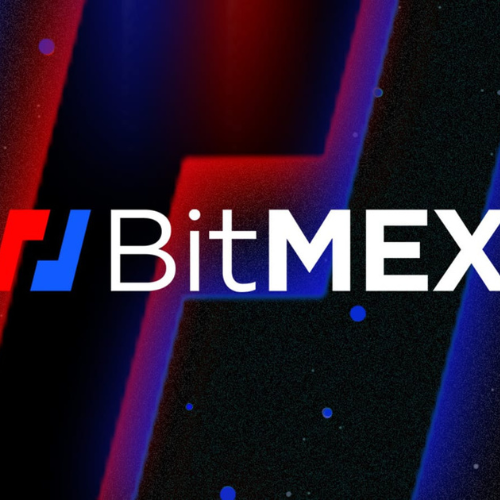BitMEX, once a prominent name in the world of cryptocurrency trading, has recently pleaded guilty to a criminal charge in the United States for failing to maintain an adequate anti-money laundering (AML) program. This development marks a significant chapter in the ongoing regulatory scrutiny faced by digital asset exchanges, highlighting the challenges of navigating compliance in a rapidly evolving industry.
Legal Background and Charges
The charge against BitMEX stems from its violation of the Bank Secrecy Act (BSA), a key piece of legislation designed to prevent money laundering and ensure transparency in financial transactions. Federal prosecutors in Manhattan accused BitMEX of knowingly flouting these regulations while conducting business with U.S.-based customers, despite purportedly withdrawing from the U.S. market in 2015.
BitMEX’s operations allegedly included inadequate measures to verify the identities of users, with some accounts reportedly only requiring an email address for registration. This lax approach facilitated U.S. residents’ access to its platform, contrary to regulatory requirements aimed at preventing financial crimes.
Previous Settlements and Founders’ Guilty Pleas
In a statement, BitMEX acknowledged the charge, describing it as an extension of previous legal actions against the exchange and its founders dating back to 2020. The company had previously settled with the U.S. regulators in 2021 and agreed to a significant penalty of $100 million. Moreover, three of its founders pleaded guilty to related charges in 2022, each agreeing to pay fines amounting to $10 million.
These legal actions highlight a pattern of regulatory scrutiny and enforcement against BitMEX, highlighting persistent issues in its compliance practices despite earlier settlements. The fines imposed on the founders and the exchange itself reflect the severity of the allegations and the authorities’ commitment to enforcing AML regulations in the cryptocurrency sector.
Operational Misconduct Allegations
The crux of the issue revolves around BitMEX’s alleged failure to implement adequate safeguards against money laundering, even as it sought to expand its revenue base by engaging with U.S. clients. Despite purported efforts to restrict access for U.S. residents, prosecutors argued that the exchange employed insufficient mechanisms, such as rudimentary identity verification processes that merely required an email address.
Furthermore, prosecutors detailed how BitMEX acquired a Hong Kong-based entity to facilitate U.S. dollar transactions, allegedly misrepresenting its true purpose to a local bank. These practices continued unabated until 2020, according to the prosecution’s case.
The Significance of the Guilty Plea
U.S. Attorney Damian Williams highlighted the importance of BitMEX’s guilty plea, stressing the necessity for cryptocurrency companies to adhere to U.S. laws while conducting business within the country. This case serves as a clear reminder of the regulatory responsibilities placed on financial institutions, particularly those in the digital asset sector, to prevent the abuse of the financial system.
The guilty plea also highlights broader implications for the cryptocurrency industry, where regulatory compliance remains a critical challenge amidst rapid technological innovation and global financial integration. As digital assets gain mainstream acceptance, governments worldwide are intensifying efforts to establish clear regulatory frameworks that balance innovation with investor protection and financial stability.
BitMEX’s Response and Compliance Improvements
BitMEX’s response to the charge included a commitment to seek an expedited sentencing hearing, arguing against further financial penalties on the grounds that significant sums had already been paid through settlements and fines imposed on its founders. The exchange also highlighted improvements in its compliance standards since the period under scrutiny, aiming to demonstrate proactive steps towards regulatory adherence.
The exchange emphasized enhancements in its AML and Know Your Customer (KYC) practices, including stricter verification procedures and enhanced monitoring systems. These efforts are intended to strengthen its defenses against illicit activities and enhance transparency in financial transactions conducted on its platform.
Broader Industry Implications
The implications of BitMEX’s legal troubles extend beyond its own operations, reflecting the broader challenges faced by cryptocurrency exchanges worldwide. As digital assets gain mainstream acceptance and adoption, regulatory oversight becomes increasingly stringent, necessitating robust compliance frameworks to mitigate the risks associated with financial crime and illicit activities.
Industry analysts view BitMEX’s case as a cautionary tale for other cryptocurrency platforms, emphasizing the imperative of adhering to regulatory standards in the jurisdictions where they operate. The evolving regulatory landscape demands proactive engagement and collaboration between digital asset exchanges and regulators to foster trust and integrity within the financial system.
Future Outlook
BitMEX’s guilty plea represents a pivotal moment in the cryptocurrency industry’s regulatory journey, highlighting the imperative of robust compliance measures in safeguarding financial integrity. As stakeholders navigate the complexities of digital asset regulation, the lessons learned from this case are likely to shape future strategies and approaches towards fostering a transparent and compliant ecosystem for cryptocurrencies globally.
Looking ahead, the outcome of BitMEX’s legal proceedings could set precedents for future regulatory actions against cryptocurrency exchanges. It highlights the increasing intersection of digital finance and conventional regulatory frameworks, reflecting global governments’ efforts to harmonize innovation with safeguarding investor interests and ensuring financial stability.
The evolving regulatory landscape demands proactive engagement and collaboration between digital asset exchanges and regulators to foster trust and integrity within the financial system. As the cryptocurrency sector continues to evolve, regulatory compliance will remain a key determinant of market legitimacy and sustainable growth.


